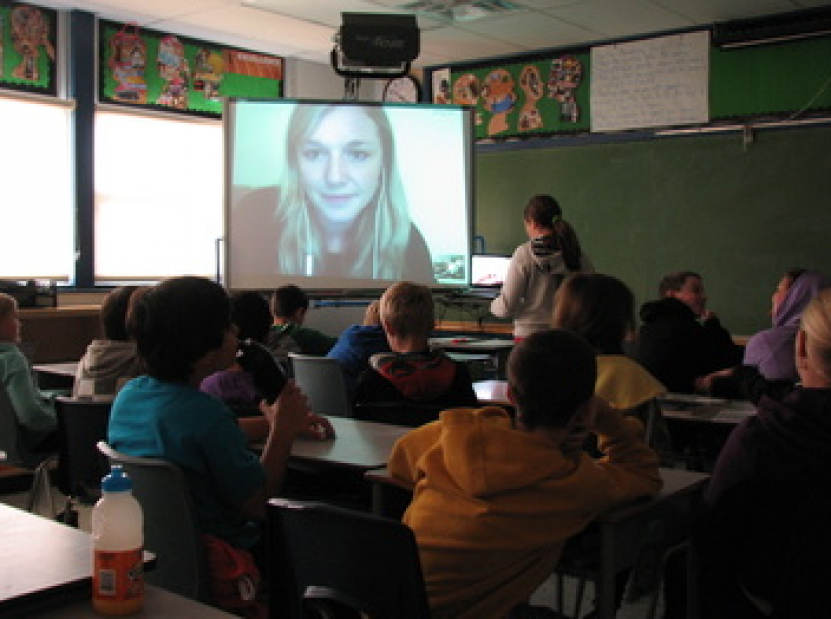Plastics In Our Oceans - Emily Penn

My class is on a mission to connect with 50 scientists, explorers and conservationits from around the world using Skype. Here's a class blog from speaker #5 - Emily Penn (Ocean Advocate and DIrector of Pangea Explorations.
Today we connected with Emily Penn for a lesson on plastics in our ocean. She was an amazing speaker, very knowledgable and she had a treasure trove of good information for us. After Olimpia and Izzy introduced our class, Emily mirrored her computer screen to our smartboard so that we could watch a slideshow that she put together. We had a minor hiccup with a dropped call, but after a few minutes, we reconnected and continued the lecture.We learned about her time aboard the Earthrace, a boat powered by biodiesel. On her journey they broke the record for the fastest trip around the world in a motorboat, making it in only 60 days. Along the way, they stopped in 120 different cites to talk about the project.
She organized a beach clean up on the Pacific island of Tonga. As a small island, they had a massive garbage problem, with most of it littering their beautiful beaches. Emily put together a huge clean-up and had the trash removed by a large cargo ship. She is now the director of a global organization called Pangea Explorations. From the 72 foot sailboat, the Sea Dragon they undertake expeditions to the most remote places on Earth to examine the impacts of plastics in our oceans.
Emily gave us a summary of the global implications of plastics in our oceans, the current research and the damage that they are causing. At the end of her presentation she suggested ways that we could slow the spread of plastics as well as raise awareness. After her lesson, she answered several questions from the class.
Big thanks to Emily and Digital Explorer for setting the lesson up. We look forward to checking out Emily's website at Pangea Exploration and seeing if there is something we can do to combat plastics at a local level.
Some of the things we learned included:- There are 5 major gyres in our oceans where plastics gather
- Every 3 seconds we use roughly 60,000 plastic bags
- There are 7 types of plastic that need to be recycled differently. You can check the bottom of various plastic bottles to determine what type it is
- Scientists conducted a really cool experiment where they placed GPS trackers on pieces of plastic and monitored their progress over 20 years to determine the locations of major gyres in the Pacific
- Plastics in the ocean are quickly broken down into smaller pieces through exposure to the sun and are mistaken by a wide range of animals for food sources
- At a microscopic level, plastic particles are almost indistinguishable from the tiny zooplankton and plankton that many filter feeders and small fish feed on
- Probably scariest of all, the numbers of large mammals, sea turtles, large fish and sharks are falling dramatically in the open ocean. The visible effects of overfishing and plastics in our oceans
- Some fishing nets being dragged behind boats are large enough to fit over 10 jumbo jets, imagine how many non-target species a net like that can capture



